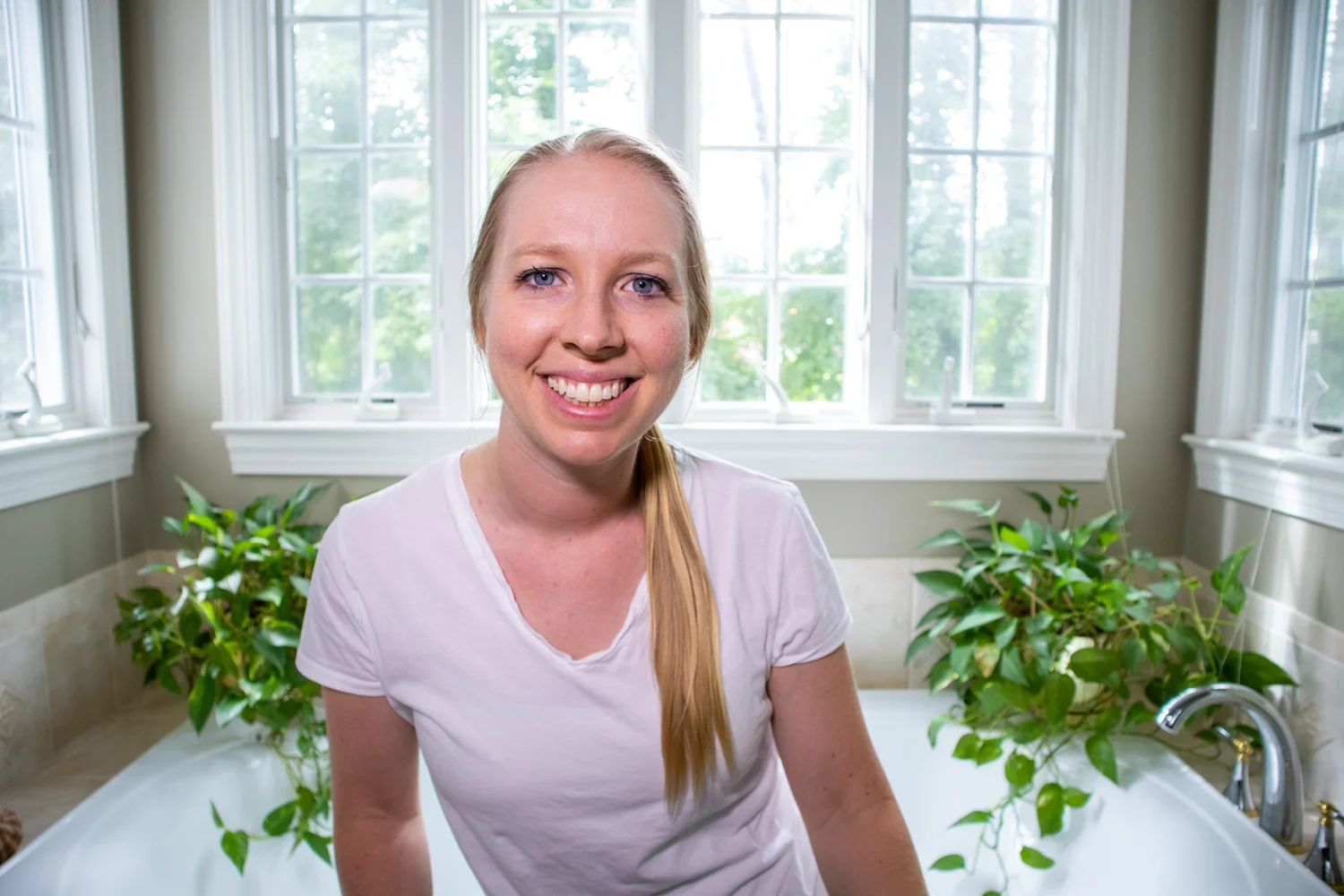Dear United States Policy Makers: Look to South Africa for Health Insurance Ideas
I moved to South Africa in 2014, married a South African native and lived there for 1.5 years until we moved to my home country, the United States. Upon my arrival to South Africa, my husband Wiehan added me to his Classic Saver health care plan with a company called Discovery. He paid R2100 ($159.70) each month for the both of us, which included full hospital coverage; full coverage for chronic conditions; medical savings account for day-to-day needs; and international emergency coverage. I used the insurance for doctors visits with our general practitioner when I contracted mononucleois and needed blood tests; when I cracked my ankle bone from a biking incident; and when I needed a dental cleaning - yes, dental cleaning was included in that minor monthly payment to Discovery. It's already too good to be true, hey? In addition to our general practitioner, I consulted with a homeopathic doctor and an integrative medicine doctor and was able to get a partial refund for some of these visits through our medical savings account.
After my ankle injury healed in mid-2015, we became active in a Discovery program called Vitality, which cost around R600 ($45) to join. It took some gradual backend work to get set up, but the more we became involved, the more amazingly beneficial we realized it was - in so many ways!
Here is a breakdown of what we experienced through Discovery Vitality:
The Vitality rewards were based on a sliding scale with 5 levels, from Blue up to Diamond. Each level carried with it a higher percentage of rewards, beginning with 15% at Blue to 35% with Diamond. If we'd had a Discovery credit card, our rewards would have increased even further, up to 50% at the Diamond stage! We could earn points in a number of different ways and were able to rack up enough to get to the Gold stage in under 12 months. If we'd stayed in South Africa and hit Gold three years in a row, we would’ve earned Diamond.
To get started with the program, we spent a Sunday afternoon at home, filling out personal online health profiles and earned points for filling them out. We also earned points for checking a box in the profile that said we don't smoke. We had a free session with a biokineticist and earned points. We had free tests for HIV, blood pressure, cholesterol, glucose and earned points.
Parts of Vitality worked in connection with loyalty cards for two grocery stores, Woolworths and PicknPay; two pharmacies, Clicks and Dis-Chem; and two athletic gear stores, Sportsmans Warehouse and Total Sports. We received up to 25% cash back for the healthy items that we purchased at the grocery stores, and were penalized when junk food was purchased. We received up to 25% cash back for personal care products at the pharmacies. And we received up to 25% cash back for athletic gear. They cap this amount to R3000 ($228) per month, which is still a heck of a deal!
Up to 100% of gym fees are refunded through Vitality. Wiehan already received a free gym membership as a spinning instructor at Virgin Active. But as a Vitality member, I received 80% cash back for my Virgin Active membership. We earned points for simply entering our gym and swiping our gym card (limit 1 per day). And then here was the real kicker - we earned points for exercising! Based on our individual health and average activity levels, Vitality would set up a weekly active rewards target that was tracked through apps like Strava, Garmin and Runkeeper. We were able to earn points for spinning classes, bike rides, running - anything cardiovascular. Participation in triathlon, running and cycling races racked up tons of points. Unfortunately, some activities like yoga and swimming weren’t trackable for me. Wiehan, however, was able to gain swimming points because he had a waterproof Garmin watch. But even without yoga and swimming points, I was still able to reach my target most weeks.
If we exercised enough within a week and met our active rewards goals, we earned a free beverage either at Kauai, a cafe actually located in our Virgin Active gym, and in malls throughout the country; or at Vida e Caffé, a coffee shop in the malls. We loved getting our weekly smoothies at Kauai after a nice workout. Wiehan’s favorite smoothie was the Peanut Butter Bomb, which contained whey protein sourced from grass-fed cows, sugar-free peanut butter, banana, cacao, full-cream yogurt (yay for healthy fat!) and milk. I loved the Coco Mango, with mango, pineapple, frozen yogurt, coconut milk, coconut-infused water, mint and honey. Mmm! I can almost taste it now, thinking about it! Yum!
On top of all of these benefits directly related to health, there are also rewards for travel, technology and entertainment available through Vitality. It’s possible to earn up to 100% cash back on domestic flights with the local South African company Kulula. British Airways also offered incentives for international flights. The movie theater Ster-Kinekor provided discounts on movie tickets. And last, but certainly not least of all, if we'd stayed in South Africa longer, signed up for the Discovery credit card and met every weekly activity goal for an entire year, we could have earned a free Apple Watch!
We were in the best shape of our lives by the time we moved back to the states. Discovery claims that members can “live a longer, healthier life. Engaged Vitality members exercise 25% more than non-Vitality members and their food purchases are 9% healthier. It's been proven that Vitality members live longer than non-Vitality members.” We were certainly reaping the health benefits.
Here were my stats just before returning to the states in January 2016:
Blood Pressure: 106/84 Cholesterol: 4-32 Glucose: 6-3- Weight: 50kg (110lbs) Waist: 68cm (26.7in)
Okay, so let’s talk now about the health insurance nightmare that we’re dealing with now in the United States…
In South Africa we engaged with our medical insurance in fun and empowering ways, which, if done properly actually reduces the need for medical care. In contrast, our American health insurance plan adds significant burden and stress to our lives. It increases our necessity to work by charging exorbitant amounts of money each month and offering zero incentives for healthy living.
Currently, for two healthy 30/31 year old adults that rarely visit doctors, our plan through HealthCare.Gov is $572.94 per month, part of which is subsidized based on household income, so that we end up paying $442 each month. This was one of the cheapest plans we could find through the Affordable Care program, classified under the “Bronze” category, (aka least expensive and least comprehensive coverage).
According to the HealthCare.Gov website: “[Bronze plans] can be a good choice if you usually use few medical services and mostly want protection from very high costs if you get seriously sick or injured. Note: Bronze plan deductibles can be very high. This means you could have to pay thousands of dollars of health care costs yourself before your plan starts to pay its share.”
Unlike our plan with Discovery that covered 100% of emergency medical services, in the United States, with our plan that already costs $5304 annually, we would each be required to pay a $5200 deductible before any coverage for emergency services would take effect. Additionally, we'd be required to pay $500 per hospital visit.
My husband needed a TB test for a job application. (Quick side note: Why are TB tests required for practically any new educational, career or travel opportunity? Between the two of us, we've had 4 TB tests in the last 2.5 years. We really don't enjoy getting that solution injected into our bodies...gross.) After paying a $10 copay twice (for the initial test and the follow up test check), he was given a bill of $11.72. In contrast, I had a TB test done when we first moved back to the U.S. in March, 2016. I paid out of pocket at the Minute Clinic. It cost $64, meaning that insurance only cut the cost in half for us. Wiehan returned to our primary care physician last month because he was ill with some kind of respiratory infection. During his visit with the doctor, he was tested for the flu. The test result was negative, so we never figured out the exact cause of the illness. The doctor said maybe it was another strain of the flu that didn't show up in the test and suggested that Wiehan take Mucinex and gave a prescription for an inhaler, which cost us $66.99 out of pocket (and ultimately did not help his symptoms). Also... Mucinex? Really? That’s your brilliant solution that we could have just gone to CVS on our own to pick up? And to top it off, again after paying a $10 copay, we just received a bill from our primary care physician for $28 for the flu tests that came back negative, with no tangible answers from the doctor.
According to our plan benefits, I would be required to pay a $30 copay when visiting a specialist doctor such as a chiropractor (though who knows what kind of other charges would result, like the unexpected test bills we've been receiving). Instead, I purchase a membership with The Joint, where with a $69.99 monthly fee, I can visit up to 4 times per month for chiropractic adjustments. It’s amazing and my $442 insurance bill doesn’t contribute in any way.
But guess what? If we wanted to opt out of health insurance, we’d be penalized a daunting $695 per adult. Yes, you read that correctly - two low-risk adults with extremely healthy lifestyles would be charged $1390 annually to take the risk of injury or illness upon themselves and opt out of government-approved health insurance.
Let’s recap:
Wiehan and I are currently paying $5315.28 annually for health insurance. On top of that, we have been charged $136.71 for co-pays and tests. Out of pocket, I pay $839.88 for the year to see a chiropractor. Our total medical bill for 2017 as of March comes to a lovely $6291.87. This doesn't even factor in our dental fees.
In contrast, we paid roughly $1961.40 annually for Discovery health insurance and our Vitality memberships, no copays, no prescription costs, no costs for regular dental check-ups. With this plan we had a medical savings account that covered things like x-rays and a moon boot when I injured my ankle, along with visits to integrative medicine doctors. We also had the ease of mind to know that emergencies, both locally and internationally, would be fully covered. Our insurance company could actually pay back to us in cash up to $2736 annually for healthy lifestyle choices. With the 80% Vitality discount, what should have been a $35 monthly gym membership only cost a total of about $84 annually for me. And on top of that we each received a free smoothie each week and discounts on flights and entertainment. Oh and if we'd stayed long enough, we could have earned free Apple Watches. Essentially, Discovery would have been paying us to use their services.
Now in the U.S., we don’t have as much time to focus on healthy lifestyles anymore because we’re so busy working to pay off such ridiculous insurance fees. I don’t know my current blood pressure, cholesterol or glucose (it would cost too much to go get them checked out anyway), but in the last year, I’ve gained 8 kilograms (17 pounds) and put on 4cm (1.5inch) around my waist. I exercise at least once a week, joining Wiehan at a spinning class that he teaches at a local cycle studio, but otherwise, exercise is a luxury that no longer takes priority.
As a result of our experiences, here are my solutions to the United States health insurance fiasco:
1) Allow citizens to choose the levels of coverage required and don't penalize someone if they don't want to sign up for insurance. That's just absurd. (We’d currently be paying less to have emergency-only coverage, if such a thing exists, and then pay out of pocket for any necessary day-to-day doctors visits.)
2) Put a portion of monthly payments into a medical savings account that can go to day-to-day medical needs.
3) Allow citizens to see the doctors that they want to see. If I want to go to an alternative medicine doctor, allow at least partial reimbursement.
4) Stop promoting sugar and subsidizing junk food and start providing incentives, both to businesses and individuals, for healthy lifestyle choices. (The South Africa government is talking about implementing a Sugar Tax.)
— As an aside, there are a few suggestions I have for Discovery Vitality that I’d like to point out quickly. Since I am after all writing here for a project called Supermarket Separation, I'll point out that the Vitality system works in conjunction with supermarkets. In my perfect system, I would want to see a way to reward members for purchasing healthy foods from farmers markets, CSAs, etc. and growing fresh vegetables themselves.
Another issue I had with the grocery points was that we were penalized for purchasing items that contained healthy fats, like whole milk, yogurt and chicken thighs, versus being rewarded for purchasing low fat milk and chicken breasts. Despite the low fat craze that was popularized in the United States several decades ago and apparently went international, in actuality, a low fat diet is extremely taxing and non beneficial to the human body. Hopefully Discovery has updated that policy by now.
- Christin














